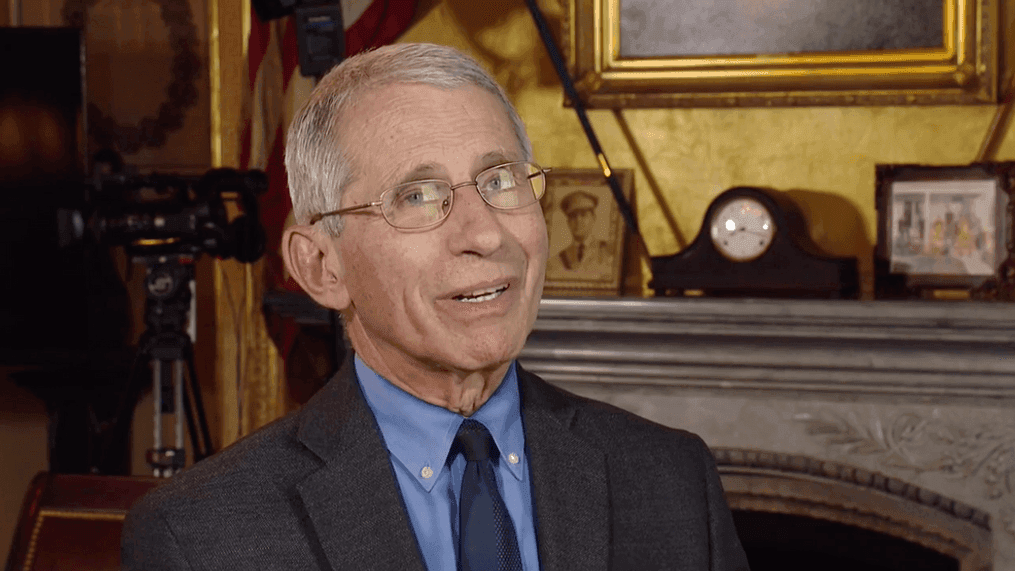One-on-one with Dr. Anthony Fauci: Discussing challenges, hard truths

WASHINGTON (SBG) When it comes to the coronavirus pandemic, few people have been in the spotlight more than Dr. Anthony Fauci, who has been working around the clock to help shape American's medical response to the disease, and directly consulting President Donald Trump.
He spoke one-on-one with Scott Thuman,Sinclair Broadcast Group's Chief Political Correspondent, about the challenges, some hard truths and what Americans should expect moving forward. You can watch the full interview and read a condensed version below:
Scott Thuman:“We’re curious. What do you think it’s going to look like for people, what will the routine behavior be for people, three, six, nine months from now?”
Dr. Anthony Fauci:“I think for a while, there's going to be clearly some attention to physical separation, but not to the extent where it’s as disruptive to the normal social and business type interactions.”
Scott Thuman: “Are you confident that we will ever get back to the normal we knew just three months ago?”
Dr. Anthony Fauci: “It depends on what you mean by normal. I think what we’re going to have embedded and imprinted in us forever is the realization that something as catastrophic as what the world is experiencing now can happen. And just, as a society, just forget about shaking hands. We don’t need to shake hands, we gotta break, we gotta break that custom. Because as a matter of fact, that is really one of the major ways that you can transmit a respiratory illness.”
Scott Thuman: “There’s some reporting now that minorities are dying at a greater rate. Why is that happening and is that information that should be public?”
Dr. Anthony Fauci: “When you look about the burden of disease — diabetes, hypertension, certain cancers, like prostate cancer — clearly there’s a disparity and a disproportionate burden among minorities, particularly African American minorities, so it’s not surprising to me at all that minority populations actually have a greater mortality rate.”
Scott Thuman: “Should there be very public breakdowns of those populations?”
Dr. Anthony Fauci: “I’m sure there will be. I have no doubt that there will be. Also, it is probably a disparate situation regarding access to medical care.”
Scott Thuman: “What about the numbers coming out of China right now because obviously some of the decision making here has to be based on what we’re seeing there? There are major cities reporting almost no infections. How is that possible?”
Dr. Anthony Fauci: “Whether or not they’re accurately reporting new infections that re-emerge, I don’t know. I hope they’re reporting it correctly ... because as we start taking steps toward some form of normality, where we pull back a bit on the physical separation restrictions, it’s important to determine in other situations, like in China, how much of a rebound there was because we would need to know that.”
Scott Thuman: “A lot of people are wondering — how freely are you able to speak with the president, with the Task Force, about your concerns? Is there a degree of confidence you have that science and health is always going to take precedence over the economy?”
Dr. Anthony Fauci: “Yeah, I am totally free in saying, everybody knows that. It’s clear to everyone that I speak based purely on scientific data on information and evidence. I communicate that to the president and vice president and they, in fact, listen.”
As for that model predicting between 100-240,000 Americans may die from the virus, Dr. Fauci says that number could go lower. His optimism, he says, is based on the fact that Americans are doing more when it comes to precautions than people think.
